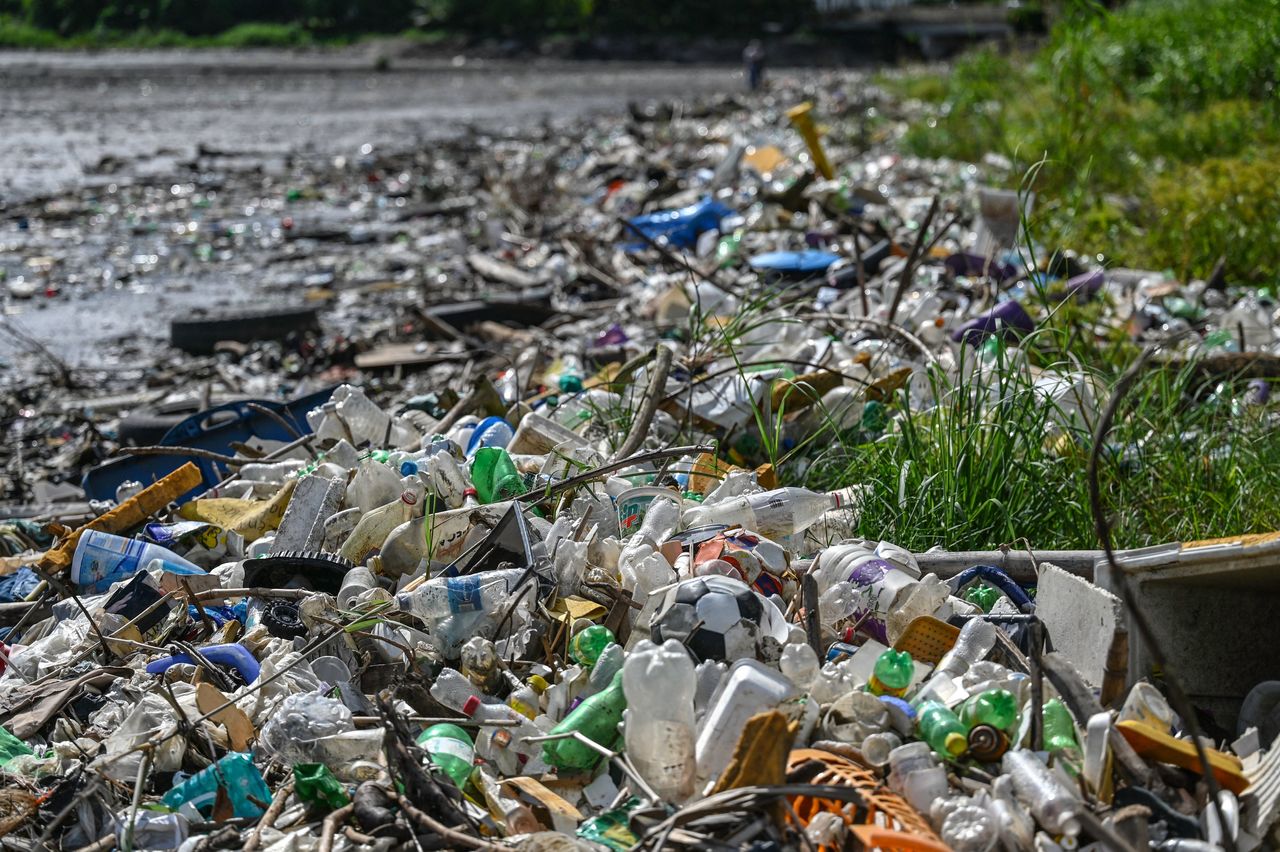Future Returns: Impact Investing Firm Expands to the Oceans of Latin America and the Caribbean
The Singapore-based impact investing firm Circulate Capital launched a US$65 million initiative on Tuesday to reduce plastic pollution in Latin America and the Caribbean.
The strategy builds on Circulate Capital’s efforts in South Asia and Southeast Asia to spur the so-called circular economy by investing in companies that turn waste into usable products. Circulate Capital Ocean Fund, which had its first close in 2019, today has US$112 million in assets.
Backing the Latin America and Caribbean initiative are major global corporations, some of which also invested in its previous financing. Among these investors are Paris-based Danone, Michigan-based Dow, and London-based Unilever, companies that depend on sourcing recycled plastic material to meet their own sustainability commitments.
The Inter-American Development Bank Group’s IDB Lab also invested, and, in fact, encouraged Circulate Capital to take its approach to Latin America and the Caribbean, says Rob Kaplan, the firm’s founder.
Wealthy individuals and family offices also have taken an interest in financing the circular-economy approach to the ocean, including Builders Vision, a philanthropic and impact investing platform founded by Lukas Walton—grandson of Walmart founder Sam Walton. Builders Vision has been a longtime supporter of Circulate Capital, which was created in 2018 by Kaplan, a former director of sustainability at Walmart.
After initially learning of Circulate Capital’s approach for reducing plastic waste, Builders Vision realised it needed to back its effort aggressively, says James Lindsay, principal at Builders Vision. Their goal is to make investing in the ocean as popular for investors as investing in clean-tech solutions for the energy transition from fossil fuels.
Ocean health is one of three areas of investing today for Builders Vision, in addition to climate and energy, and food and agriculture, given the critical role oceans play in climate change and the global food supply.
“It’s a major focus and we want everyone to go look at the ocean sector like it’s completely investable, with market rates of return, just like we would with clean tech or sustainable real assets,” Lindsay says. An endowment or foundation may easily be able to include a clean-tech fund in its portfolio, but with “oceans there’s still a lot of hesitancy.”
There are good reasons for that, Lindsay says. One is that there are few companies that have been sold or gone public and thus been able to return money to investors. That’s started to change in the last two years, and Circulate Capital’s investments are part of that story, he says.
Penta recently spoke with Lindsay and Kaplan about Circulate Capital’s latest initiative, and the investing opportunities emerging for cleaning up the ocean.
A ‘Chicken-and-Egg’ Problem
The waste-per-capita ratio in Latin America is one of the highest in the world, and Kaplan says, expectations are that it will increase by at least 25% in the next 30 years. One reason is that more than 40 million people lack access to basic waste collection.
Cleaning up that waste, however, is a “chicken-and-egg problem,” because the waste needs to be collected before it can be recycled, but “why would you collect it if no one’s going to recycle it?” Kaplan says.
Policy developments in Chile and Colombia, however, have begun to create economic opportunities for local recyclers to start up and scale up, he says. Governments in Brazil and Mexico are beginning to consider similar actions. “That is creating a level playing field for these companies to grow much more rapidly,” Kaplan says.
These developments are similar to what Circulate Capital has seen in India, where it has invested in companies such as Mumbai-based Lucro Plastecycle, which recycles flexible plastics into new materials, and Srichakra Polyplast, in Hyderabad, India, which converts old plastic bottles into food-grade quality resins for new plastic bottles.
An Ocean Portfolio
Builders Vision has made 45 investments so far to support oceans, about half with fund managers and accelerators (which fund new entrepreneurs), and another half in direct investments, Lindsay says.
In addition to plastics, Builders invests in aquaculture through, for example, the Yield Lab, an accelerator for entrepreneurs developing sustainable agriculture systems. It also invests in “monitoring, reporting, and verification” technologies that evaluate efforts such as planting mangroves or seagrass to improve the ocean’s ability to absorb carbon, in addition to technologies that filter microplastics and integrate the material into manufacturing processes.
Most of Builders’ ocean investments are in Europe, where there are more ocean-oriented venture funds. That’s because of a European Union initiative to invest in start-up vehicles so they reach a viable size, Lindsay says. Builders’ goal, however, is to invest more with firms such as Circulate Capital that are based closer to the problems they are trying to solve.
“Navigating country risk without having a sense of the landscape is incredibly challenging,” he says. “You’re going to end up deploying some capital pretty poorly.”
Spurring Economic Development
For Circulate Capital, investing in and growing companies that can rethink supply chains for recycling—“from collecting and sorting to processing and manufacturing”—has ancillary benefits.
Not only do these companies contribute to the fight against climate change, they also create jobs and help local economies.
“Across Latin America and the Caribbean there are millions and millions of people whose livelihoods depend on collecting and trading plastic waste,” Kaplan says. “As we develop the supply chains, and help them scale, that creates more economic opportunity for those vulnerable populations—if it’s done in a responsible way, which is a big part of how we invest.”
In Kaplan’s view, the problem of plastic waste and ocean health will only be solved when “we stop thinking about it just as an environmental issue and start thinking about it as an economic development opportunity.”
Companies such as Lucro and Srichakra are beginning to scale, but Kaplan says the plastics problem in South Asia and Southeast Asia alone will still require “many, many billions” of dollars of investment to solve. Part of Circulate Capital’s role is to catalyse capital by proving these investments can work.
The firm’s second ocean fund, for instance, brought in development finance institutions such as the World Bank Group’s International Finance Corp. and the European Investment Bank in addition to family offices and private investors.
“We’re seeing more investors getting interested in the space. We’re seeing these companies successfully hit their targets and their milestones,” Kaplan says. “Those are all positive directions. But there’s still a lot more work to be done before we can say we’re moving the needle.”
 Copyright 2020, Dow Jones & Company, Inc. All Rights Reserved Worldwide. LEARN MORE
Copyright 2020, Dow Jones & Company, Inc. All Rights Reserved Worldwide. LEARN MORE
This stylish family home combines a classic palette and finishes with a flexible floorplan
Just 55 minutes from Sydney, make this your creative getaway located in the majestic Hawkesbury region.
Continued stagflation and cost of living pressures are causing couples to think twice about starting a family, new data has revealed, with long term impacts expected
Australia is in the midst of a ‘baby recession’ with preliminary estimates showing the number of births in 2023 fell by more than four percent to the lowest level since 2006, according to KPMG. The consultancy firm says this reflects the impact of cost-of-living pressures on the feasibility of younger Australians starting a family.
KPMG estimates that 289,100 babies were born in 2023. This compares to 300,684 babies in 2022 and 309,996 in 2021, according to the Australian Bureau of Statistics (ABS). KPMG urban economist Terry Rawnsley said weak economic growth often leads to a reduced number of births. In 2023, ABS data shows gross domestic product (GDP) fell to 1.5 percent. Despite the population growing by 2.5 percent in 2023, GDP on a per capita basis went into negative territory, down one percent over the 12 months.
“Birth rates provide insight into long-term population growth as well as the current confidence of Australian families,” said Mr Rawnsley. “We haven’t seen such a sharp drop in births in Australia since the period of economic stagflation in the 1970s, which coincided with the initial widespread adoption of the contraceptive pill.”
Mr Rawnsley said many Australian couples delayed starting a family while the pandemic played out in 2020. The number of births fell from 305,832 in 2019 to 294,369 in 2020. Then in 2021, strong employment and vast amounts of stimulus money, along with high household savings due to lockdowns, gave couples better financial means to have a baby. This led to a rebound in births.
However, the re-opening of the global economy in 2022 led to soaring inflation. By the start of 2023, the Australian consumer price index (CPI) had risen to its highest level since 1990 at 7.8 percent per annum. By that stage, the Reserve Bank had already commenced an aggressive rate-hiking strategy to fight inflation and had raised the cash rate every month between May and December 2022.
Five more rate hikes during 2023 put further pressure on couples with mortgages and put the brakes on family formation. “This combination of the pandemic and rapid economic changes explains the spike and subsequent sharp decline in birth rates we have observed over the past four years,” Mr Rawnsley said.
The impact of high costs of living on couples’ decision to have a baby is highlighted in births data for the capital cities. KPMG estimates there were 60,860 births in Sydney in 2023, down 8.6 percent from 2019. There were 56,270 births in Melbourne, down 7.3 percent. In Perth, there were 25,020 births, down 6 percent, while in Brisbane there were 30,250 births, down 4.3 percent. Canberra was the only capital city where there was no fall in the number of births in 2023 compared to 2019.
“CPI growth in Canberra has been slightly subdued compared to that in other major cities, and the economic outlook has remained strong,” Mr Rawnsley said. “This means families have not been hurting as much as those in other capital cities, and in turn, we’ve seen a stabilisation of births in the ACT.”
This stylish family home combines a classic palette and finishes with a flexible floorplan
Just 55 minutes from Sydney, make this your creative getaway located in the majestic Hawkesbury region.






















